
Stocks close lower as concerns on banking fallout spread
Stocks close lower as concerns on banking fallout spread
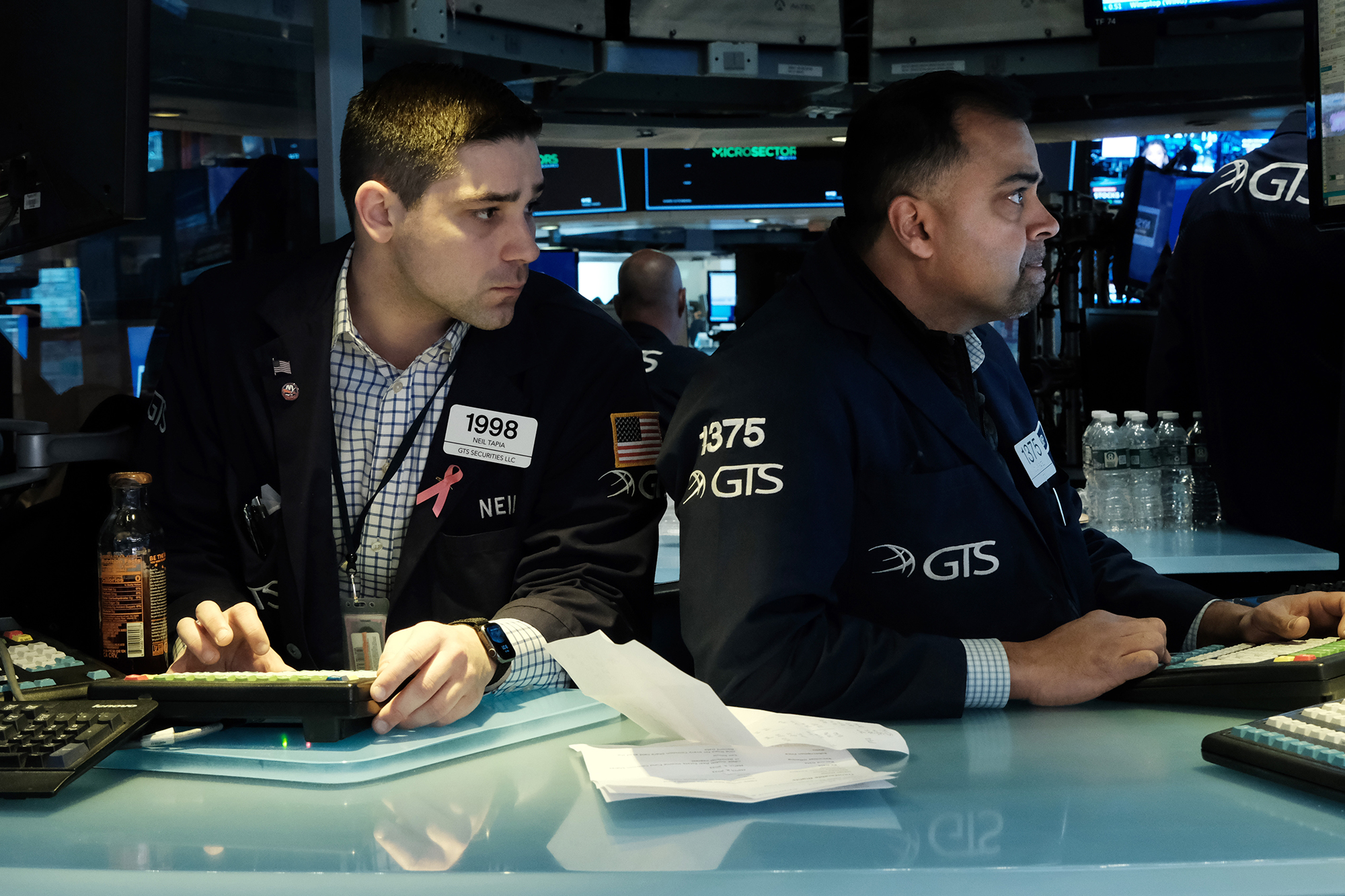
Stocks plunged lower on Friday after the sudden collapse of a top 20 bank, SVB, sent investors into a tizzy.
Wall Street’s fear gauge, the VIX, jumped 15% on Friday afternoon as investors rushed to safe havens to avoid being pulled into any banking sector contagion.
While shares of larger banks stabilized Friday after falling late on Thursday, smaller banks continued to suffer. An exchange-traded fund tracking regional banks, the SPDR S&P Regional Banking ETF, was down 4.4%.
The selloff sent the S&P 500 nearly negative for the year, erasing almost all previous gains.
Treasury yields, meanwhile, saw their largest decline since 2008, when Lehman Brothers collapsed, as investors flocked into bonds and away from the stock market.
The collapse of SVB upstaged what looked set to be the biggest news of the day — the February jobs report. Yet traders weren’t even sure how to process the “Goldilocks” data, which showed overly hot hiring at 311,000 jobs added, but respectable wage growth of 0.2% last month.
The Dow fell by 345 points, or 1.1% on Friday. The S&P 500 dropped 1.5% and the Nasdaq Composite was 1.8% lower.
For the week, The Dow fell by 4.4%, its worst week since June. The S&P 500 was down 4.6% and the Nasdaq was 4.7% lower.
SVB went down so fast, the feds couldn’t wait until the market closed
From CNN’s Allison Morrow
Depositors in Silicon Valley Bank were in such a rush to withdraw their money, federal regulators had to stage an unusual takeover — showing up at the bank’s offices first thing Friday morning, rather than waiting until the market close.
“SVB’s condition deteriorated so quickly that it couldn’t last just five more hours,” wrote Better Markets CEO Dennis M. Kelleher. “That’s because its depositors were withdrawing their money so fast that the bank was insolvent, and an intraday closure was unavoidable due to a classic bank run.”
Since the financial crisis, the FDIC has preferred to seize banks on Friday after the markets close, analysts from investment group TD Cowen wrote. Another reason for the mid-morning takeover may be because of “the small share of fully insured accounts made selling the bank difficult. We believe the regulators wanted to prevent further withdrawals by those with amounts exceeding the FDIC insurance cap of $250,000.”
What happened to SVB?
From CNN’s Allison Morrow
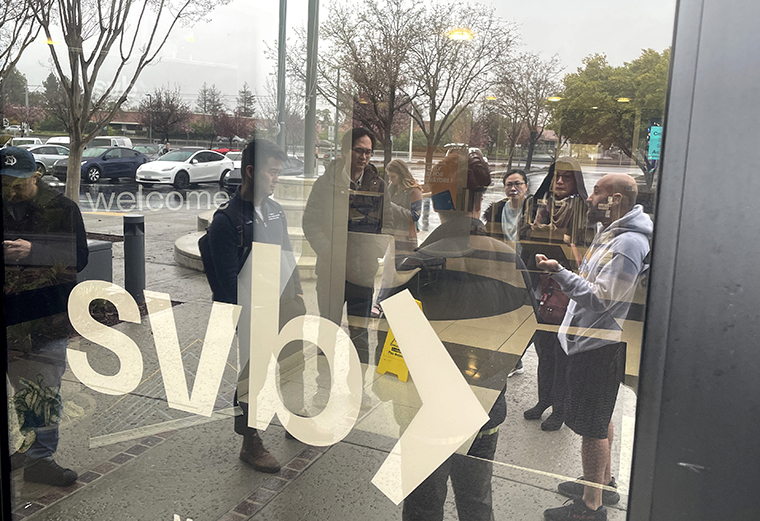
Silicon Valley Bank’s decline stems partly from the Federal Reserve’s aggressive interest rate hikes over the past year.
After years of interest rates hovering near zero, the central bank last spring began a series of historic rate hikes to make borrowing for businesses and individuals more expensive — a way to cool the economy and bring inflation in line.
Higher rates hit tech especially hard, undercutting the value of tech stocks and making it tough to raise funds, Moody’s chief economist Mark Zandi said. That prompted many tech firms to draw down the deposits they held at SVB to fund their operations.
“Higher rates have also lowered the value of their treasury and other securities which SVB needed to pay depositors,” Zandi said. “All of this set off the run on their deposits that forced the FDIC to takeover SVB.”
Silicon Valley Bank shutdown is the second biggest bank failure in US history
From CNN’s Matt Egan
The collapse of Silicon Valley Bank marks the second largest shutdown of a bank in US history, according to the FDIC.
Silicon Valley Bank had $209 billion in total assets at the end of last year. The last time a bank was shut down with that many assets was Washington Mutual, which collapsed in September 2008 in the biggest bank failure in history, according to the FDIC.
After a flurry of failures during the global financial crisis, major bank failures became relatively uncommon for years.
Janet Yellen convenes regulators, expresses ‘full confidence’ in banking regulators
From CNN’s Matt Egan
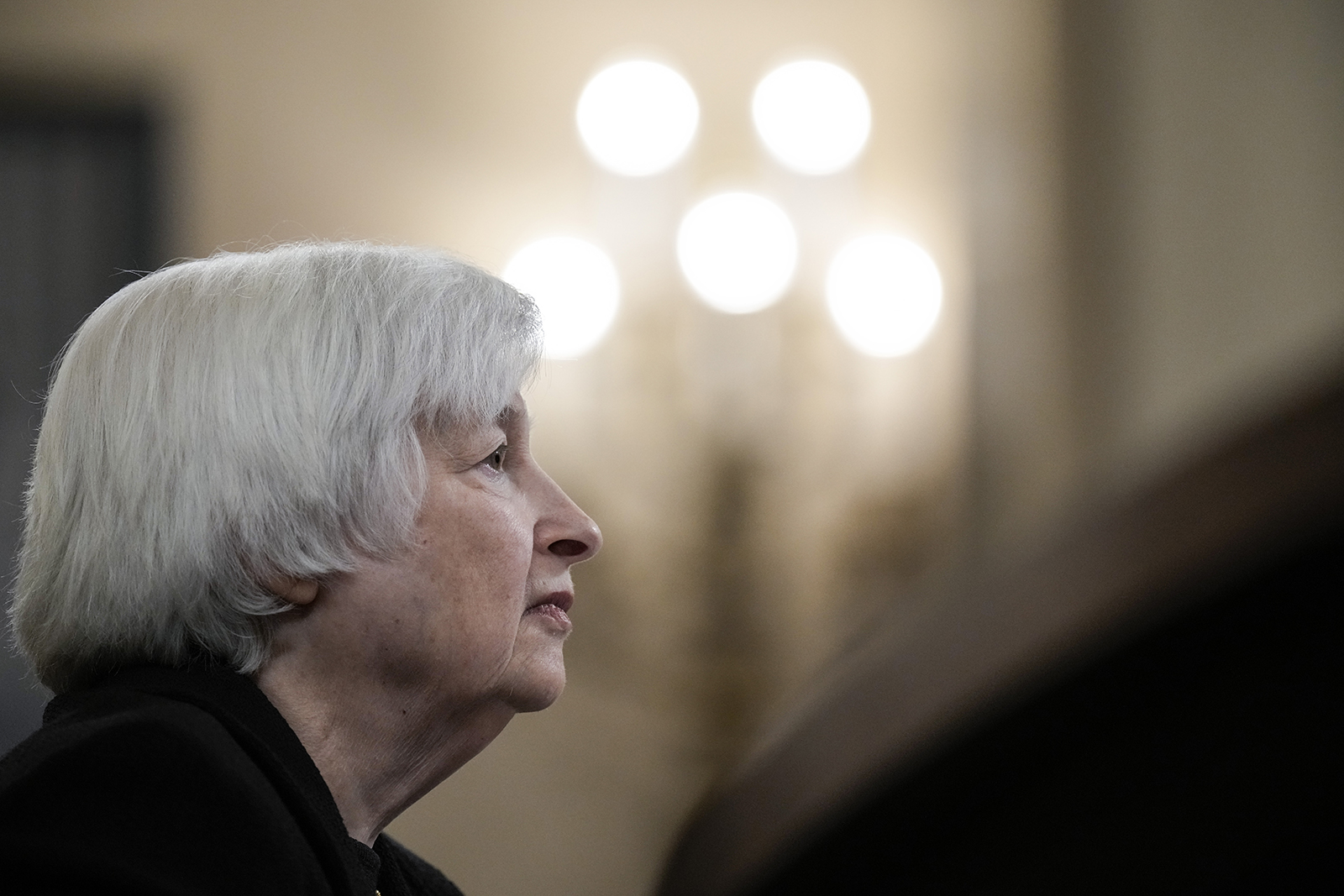
Treasury Secretary Janet Yellen huddled with financial regulators on Friday to discuss the sudden collapse of tech lender Silicon Valley Bank.
Yellen, who chairs the Financial Stability Oversight Council, met with leaders from the Federal Reserve, the Federal Deposit Insurance Corporation and the Office of the Comptroller of the Currency to “discuss developments around Silicon Valley Bank,” according to a readout from the Treasury Department.
“Secretary Yellen expressed full confidence in banking regulators to take appropriate actions in response and noted that the banking system remains resilient and regulators have effective tools to address this type of event,” Treasury said.
Silicon Valley Bank shutdown is the biggest bank failure since 2008
From CNN’s Matt Egan
The collapse of Silicon Valley Bank marks the largest shutdown of a US bank since 2008 during the Great Recession.
Silicon Valley Bank had $209 billion in total assets at the end of last year, according to the FDIC. The last time a bank was shut down with that many assets was Washington Mutual, which collapsed in September 2008, according to FDIC data.
After a flurry of failures during the global financial crisis, major bank failures became relatively uncommon for years.
Silicon Valley Bank shut down by regulators, FDIC says
From CNN’s Matt Egan
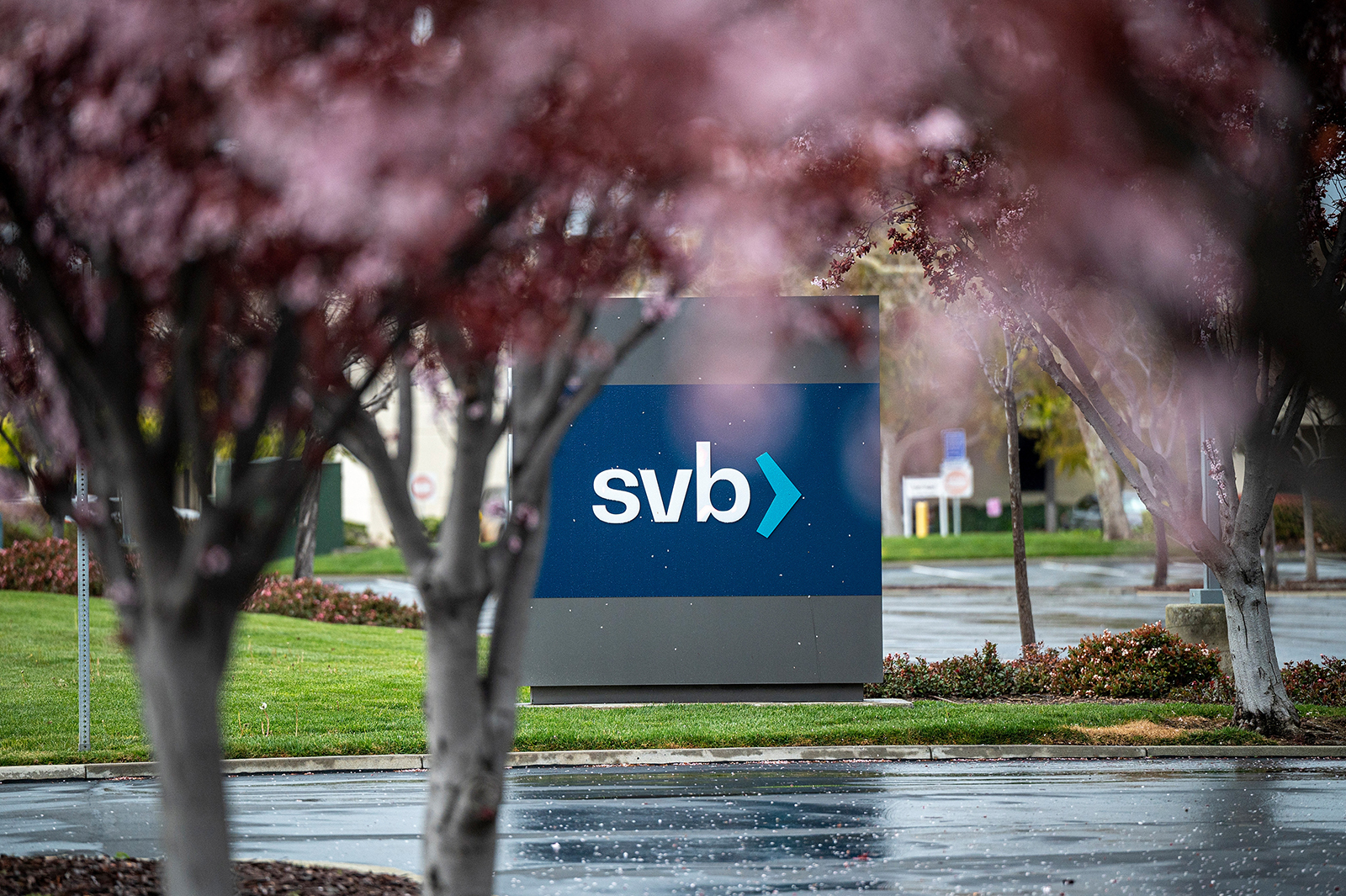
Silicon Valley Bank, a tech lender facing sudden financial trouble, was shut down on Friday, marking a swift downfall for a major bank.
The Federal Deposit Insurance Corporation said in a statement that Silicon Valley Bank was closed by California regulators, which appointed the FDIC as receiver.
Silicon Valley Bank had about $209 billion in total assets and $175 billion in total deposits as of the end of last year, according to the FDIC.
The FDIC said all insured depositors will have “full access” to their insured deposits by no later than Monday morning. The FDIC added it will pay uninsured depositors an “advance dividend within the next week” and they will receive a receivership certificate for the remaining amount of their uninsured funds.
To protect depositors, the FDIC said it created the Deposit Insurance National Bank of Santa Clara, which will hold all insured deposits of Silicon Valley National Bank.
The FDIC urged customers with accounts in excess of $250,000 to contact the FDIC.
Stocks fall after SVB goes into receivership
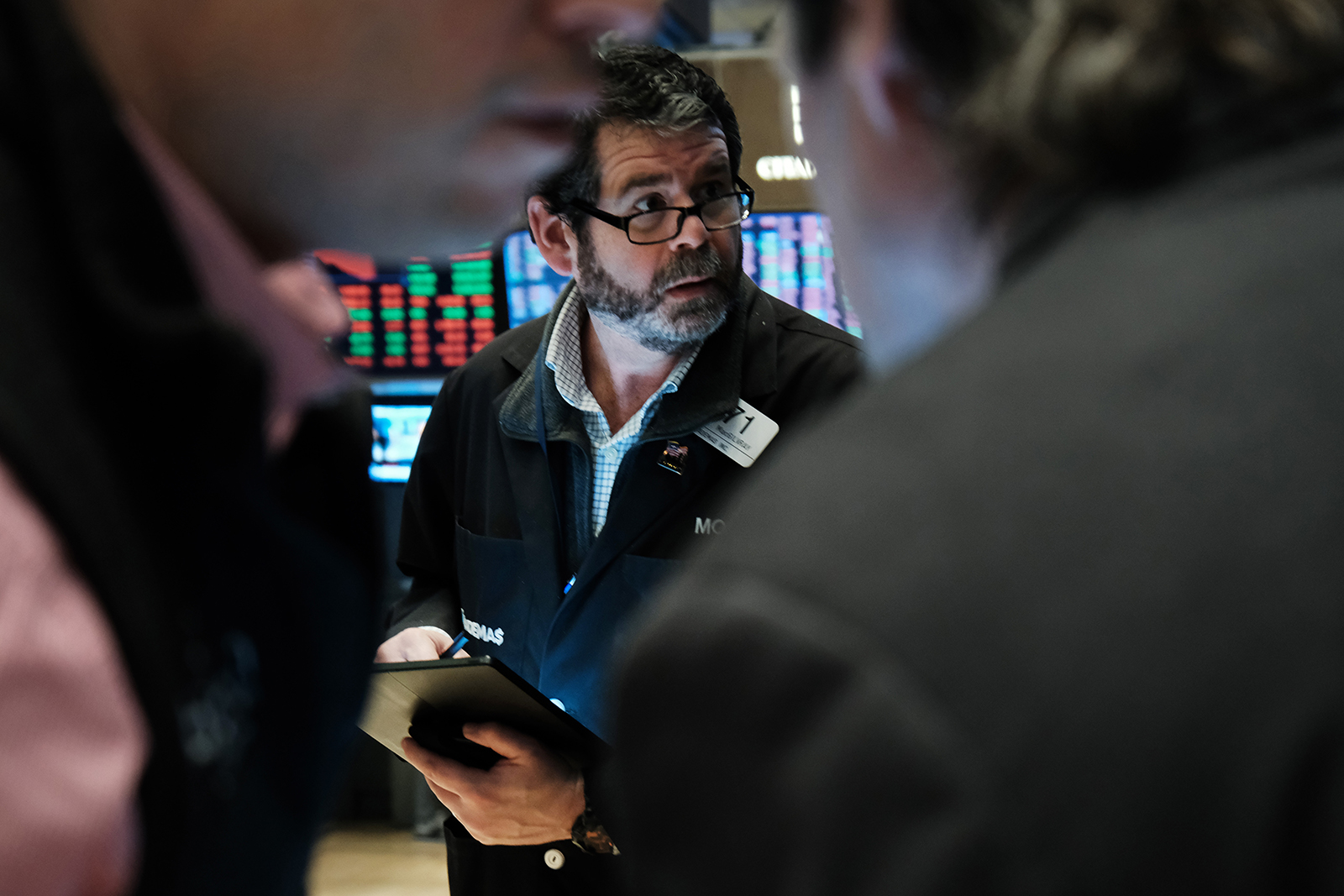
All three major indexes tumbled Friday after digesting a mixed jobs report and volatility in banking shares after the collapse of Santa Clara, California-based tech lender SVB.
The Dow fell 72 points, or 0.2%. The S&P 500 fell by 0.4% and the Nasdaq slipped 0.5% in morning trading.
Hiring slowed to 311,000 jobs in February, according to the Labor Department. While that’s a cooldown from January’s red-hot numbers, it shows that the labor market remains robust — meaning a larger-than-expected rate hike at the Federal Reserve’s next meeting isn’t off the table.
At the same time, bank stocks teetered on Friday after SVB was put into receivership in the wake of falling deposits.
“The idea that a large regional bank with deep roots in a very key sector of the economy … could just sort of all of a sudden, out of the blue, reveal billions of dollars of problems, really raises the question of banking contagion, and that’s a really scary scenario for financial markets. And so you’re going to get mood swings,” said Steve Sosnick, chief strategist at Interactive Brokers.
Biden touts strong jobs report and economic progress
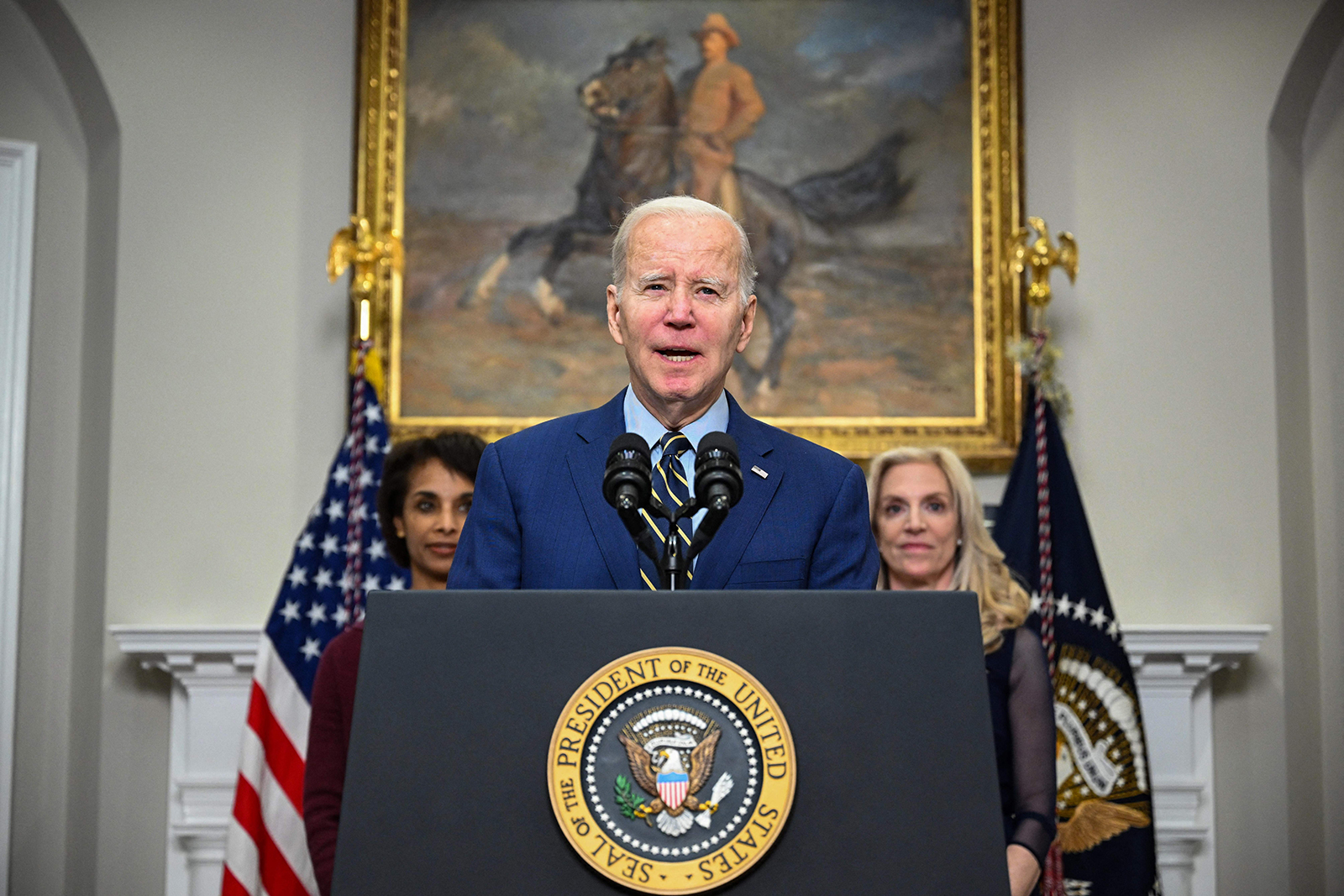
President Joe Biden touted the February jobs report late Friday morning, saying it was proof “our economic plan is working.”
In remarks from the White House, Biden was flanked by his top two economic advisers, Cecilia Rouse of the Council of Economic Advisers and, for the first time, Lael Brainard, former Federal Reserve Vice Chair, in her new role as head of the National Economic Council.
The president nodded toward Tuesday’s upcoming inflation report as another economic metric that would show progress.
Biden predicted that next week’s Consumer Price Index inflation report will be “in solid shape.” January’s CPI report showed monthly prices rose by the most in three months. However, the same report also showed that inflation continued to slow on a year-over-year basis and hit 6.4%, according to the Bureau of Labor Statistics. That’s down from December’s 6.5% but still far from the Federal Reserve’s 2% target.
In a tweet Friday morning, Biden wrote: “I’m happy to report that our economy added 311,000 jobs last month – that’s on top of the more than half a million the month before. And we did it while maintaining the lowest unemployment rate in more than 50 years.”
However, he noted that the biggest threat to the US economy is not inflation but the debt limit.
A breach of the US debt ceiling risks sparking a 2008-style economic catastrophe that wipes out millions of jobs and sets America back for generations, Moody’s Analytics warned on Tuesday.
Source: https://www.cnn.com/business/live-news/stocks-jobs-report-february/h_d4033570ebea9eab610d7b9cc6ac70d4















